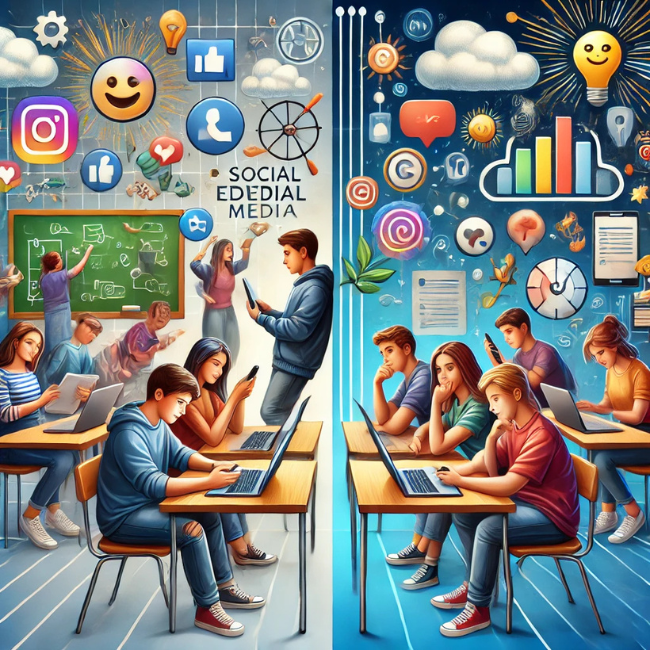How Social Media Influences Students in Real Life
Social media has become an indispensable part of students' life. Although it offers various benefits like staying connected, learning, and enjoyment, it also possesses serious demerits that could affect students' mental health, level of learning, and social communication. In this blog, we are going to study the positive and negative effects of social media on students and how to use it wisely.
Positive Impacts of Social Media on Students
Access to Information and Learning Resources
Social media simplifies the availability of learning material for students. From YouTube, LinkedIn Learning, to even Instagram or TikTok, teachers impart useful information in an engaging format.
Networking and Job Opportunities
They can reach out to professionals, mentors, and friends through sites like LinkedIn and Twitter. The latter can be gatekeepers to internships, scholarships, and career advice.
Creativity and Self-Expression
Sites like Instagram, TikTok, and blogs allow students to unleash their creativity through writing, photography, video editing, and so on.
Awareness and Social Causes
Social media allows students to be informed enough on social matters so that they can debate and participate in worthy causes.
Negative Impacts of Social Media on Students
Distraction and Poor Academic Performance
Excessive use of social media is likely to result in distractions, which decrease the focus level of students and decrease study hours, hence impacting academic performance negatively.
Mental Health Issues
Studies have shown that excessive social media use causes anxiety, depression, and low self-esteem due to cyberbullying, poor comparisons, and ongoing pressure to uphold a virtual persona.
Reduced Social Interactions
Excessive use of social media can reduce face-to-face interactions, which in turn makes the students less comfortable in real-time conversations and social interactions.
Addiction and Loss of Sleep
The majority of the students get hooked on social media, sleeping late and scrolling through their feeds, resulting in lack of sleep and low productivity.
Wise Use of Social Media by Students
Limit Time
Use features like screen-time tracking and app restrictions to restrict overuse.
Subscribing to Educational and Motivational Posts
Engage with pages and accounts that bring value and not entertainment alone.
Regular Digital Detoxes
Allocate specific hours or days when you completely avoid social media to focus on studying and interpersonal interactions.
Be Cautious Online Interactions
Avoid engaging in negative dialogue and protect personal information while engaging online.
Conclusion
Social media both benefits and harms students. Used sensibly, it can be an invaluable resource for learning, networking, and self-enhancement. Excessive or negligent usage, on the other hand, can harm mental wellbeing and academic performance. Students must aim for a balanced use of social media to enjoy its best while steering clear of its worst.
